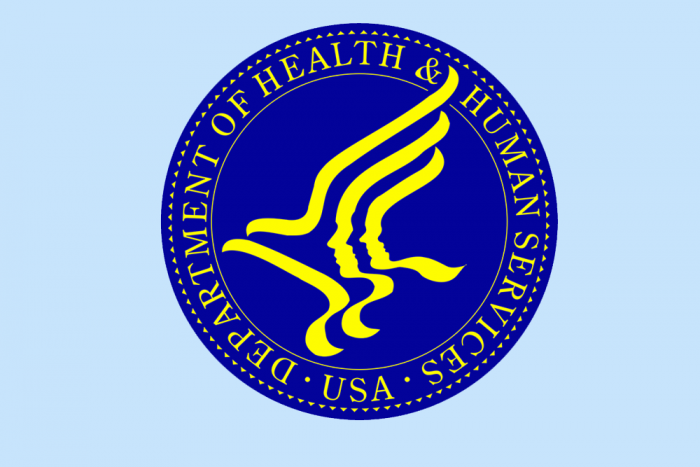RCPA Members Post Billboard Thanking DSPs During DSP Recognition Week
For those driving through Pennsylvania on Route 22 this week, be sure to keep an eye out for the Happy Direct Support Professional Week billboard! Several RCPA members were involved in the creation of this billboard, and we join them in thanking all DSPs for their hard work and dedicated service!
Input Needed: Proposed Regulations for Adult Protective Services Programs

The Administration for Community Living (ACL) is seeking input on a proposed rule to establish the first-ever federal regulations for adult protective services (APS) programs. Instructions for submitting comments and registering for an informational webinar can be found on ACL’s website and below.
APS programs across the country support older adults and adults with disabilities who experience, or who are at risk of, abuse, neglect, self-neglect, or financial exploitation. APS programs investigate reports of maltreatment; conduct case planning, monitoring, and evaluation, and provide, or connect people who have experienced maltreatment to, a variety of medical, social service, economic, legal, housing, law enforcement, and other protective, emergency, or support services to help them recover. Over the past decade, ACL has led federal efforts to support the critical work of APS programs through a variety of initiatives.
First-Ever Federal Regulations for APS
The proposed rule aims to improve consistency and quality of APS services across states and support the national network that delivers APS services, with the ultimate goal of better meeting the needs of adults who experience or are at risk of maltreatment. To those ends, the proposed rule:
- Establishes a set of national standards for the operation of APS programs that all state APS systems must meet. These standards formalize — and build upon — the existing National Voluntary Consensus Guidelines for State APS Systems.
- Establishes common definitions for the national APS system to improve information sharing, data collection, and standardization between and within states.
- Requires state APS systems to develop policies and procedures, consistent with state law, for coordination and sharing of information to facilitate investigations with other entities, such as state law enforcement agencies and state Medicaid agencies.
- Requires state policies and procedures to be person-directed and based on concepts of least restrictive alternatives.
- Establishes requirements for data collection, retention, and reporting.
- Establishes requirements for mandatory staff training and ongoing education on core competencies for APS staff and supervisors.
ACL has created a fact sheet with highlights of key provisions of the rule, and the full text of the proposed rule can be found on the Federal Register website.
Input Needed
The proposed rule is the culmination of many years of engagement with stakeholders from APS and long-term care ombudsman programs, as well as disability advocates, from across the country. It also reflects input received through several listening sessions, extensive research, and analysis of data from a 2021 survey of 51 APS systems, ACL’s National Adult Maltreatment Reporting System, and policy profiles from APS programs in all states and territories.
ACL now seeks feedback on the proposed rule from all who are interested in improving implementation of APS programs and services. Input from the aging and disability networks and the people served by APS programs is particularly crucial.
Comments will be accepted for 60 days, beginning when the proposed rule is officially published in the Federal Register (which currently is scheduled for Tuesday, September 12). Instructions for commenting, along with the comment deadline, can be found in the Federal Register notice and on ACL’s website.
An informational webinar will be held on Monday, September 18, at 11:30 am ET. Advance registration is required.
For additional questions, contact Fady Sahhar.
PA Master Plan for Older Adults White Paper Released
The Pennsylvania Department of Aging has released the PA Master Plan for Older Adults White Paper. The White Paper is an overview of the origins, development process, and core tenets that are shaping this foundational 10-year aging plan for Pennsylvania and is being offered to aging stakeholders and all interested individuals as a reference guide when formulating and submitting comments on the development of the plan.
Digital forms for providing online comments and participating in a needs assessment survey are available here. This site also contains continually updated information on hundreds of community listening sessions that the Area Agencies on Aging (AAA) are convening in every county in Pennsylvania.
ANCOR Invites You to Celebrate Direct Support Professional Recognition Week!
HHS Issues Historic Notice of Proposed Rulemaking on Section 504 of the Rehabilitation Act of 1973
Last week, the US Department of Health and Human Services (HHS) Secretary Xavier Becerra hosted a press conference to announce a rule proposed by the HHS Office for Civil Rights that would update Section 504 of the Rehabilitation Act of 1973. This is the first time these critical regulations will have been updated since they were originally signed in 1977, after four years of tireless advocacy and a 28-day protest led by disability civil rights leaders.
Updates to the rule include:
- Clarifications on the obligations to provide services in the most integrated setting appropriate to a person’s needs, consistent with the Supreme Court’s decision in Olmstead v. L.C;
- Medical treatment decisions are not based on biases or stereotypes about people with disabilities, judgments that an individual will be a burden on others, or beliefs that the life of an individual with a disability has less value than the life of a person without a disability;
- Adoption of standards for accessible diagnostic medical treatment;
- Adoption of the Web Content Accessibility Guidelines (WCAG) 2.1, Level AA, which are accessibility standards for websites and mobile applications;
- Clarification of requirements in HHS-funded child welfare programs and activities to help eliminate discriminatory barriers faced by children, parents, caregivers, foster parents, and prospective parents with disabilities; and
- Prohibition of the use of value-of-life assessments in treatment decisions.
Read the official announcement, full rule, fact sheet, and instructions on how to provide comments on the HHS website. If you have any questions, please contact Fady Sahhar.
ANCOR Shares Survey on Proposed Overtime Rule
Governor Shapiro Announces Reimbursement Rate Review for ID/A and HCBS
Governor Shapiro, via video message, announced to the National Association of Direct Support Professionals (NADSP) at their annual convention in Pittsburgh today, that he has ordered an immediate review by ODP of current reimbursement rates for ID/A home and community-based services. In addition, the Governor’s intention is that the 2024/25 state budget will utilize this completed assessment to inform how to improve support and increase funding for these programs even further. RCPA will share any additional information on this evaluation and process as it unfolds.
PDE Announces A Change in Age of Eligibility for Free and Appropriate Public Education
The Office of Developmental Programs (ODP) has shared a new policy issued by the Pennsylvania Department of Education (PDE) that allows students who are eligible under federal IDEA to access a Free and Appropriate Public Education until their 22nd birthday. This means if a student would have traditionally exited from high school during or after the school term in which they turned 21 years of age, they now may remain in school until their 22nd birthday. This includes students that exited during or after the 2022/23 school term. Students can be reenrolled by contacting the school that the student will attend in the 2023/24 school term as soon as possible and requesting reenrollment.
If you have any questions or concerns, please contact your school district. If you require additional assistance from PDE, please send your request via email to PDE.
Governor Shapiro Proclaims Sept. 10–16 as Direct Support Professionals Week
Message from ODP Deputy Secretary Kristin Ahrens:
It is a great source of pride for me that my career in this field began with work as a direct support professional (DSP). More than 30 years ago I was a DSP, first in a private family home and then in residential programs. I know firsthand how difficult the work can be, how exhausting it can be when pulled in to work extra shifts because of staffing shortages. I also know how rewarding it can be when you support someone to live life the way they want or help them achieve something they have worked for, no matter how big or small that achievement is.
The work of DSPs is challenging work. Here in the commonwealth, with our commitment to the vision of Everyday Lives for people with disabilities, we ask a great deal of our DSPs. We ask DSPs to support people with their often complicated medical and behavioral needs and with their physical, social and emotional needs. We ask DSPs to assist people to develop and maintain meaningful relationships with others in the community. We ask DSPs to support people, regardless of how high their support needs are, to live Everyday Lives like any other Pennsylvanian.
With this background, I am pleased to share with you Governor Shapiro’s proclamation that September 10-16 is Direct Support Professional Week honoring the profession and DSPs throughout the commonwealth.
















